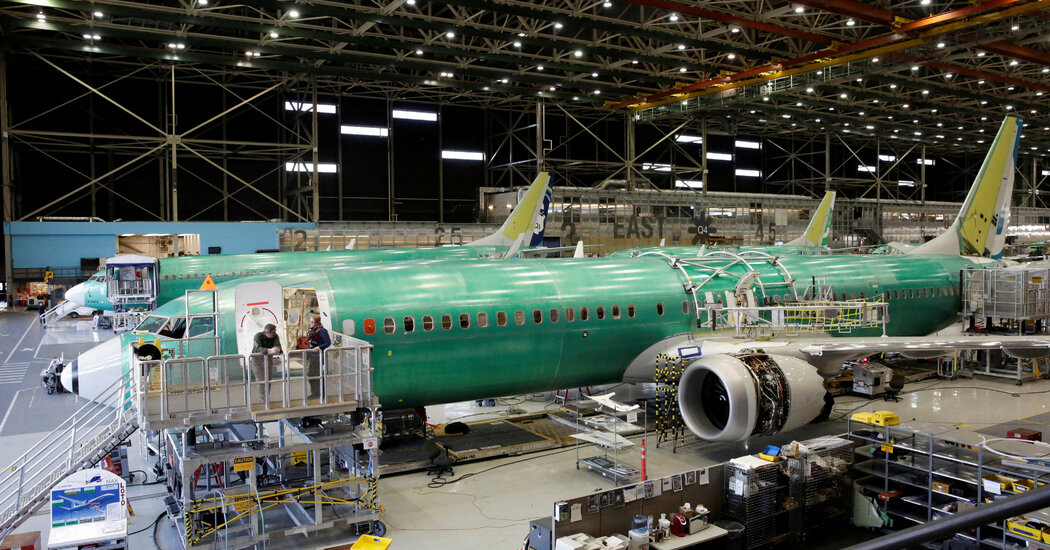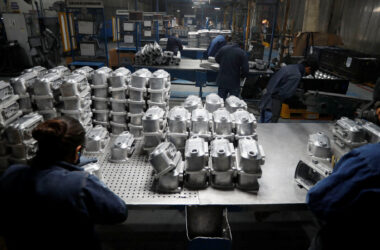Boeing said that a new problem with the fuselages of some unfinished 737 jets would force the company to rework about 50 planes, potentially delaying their delivery and raising further concerns about quality at the manufacturer and its suppliers.
Stan Deal, the chief executive of Boeing’s commercial plane unit, said in a memo to employees on Sunday that a supplier last week had identified that “two holes may not have been drilled exactly to our requirements.” It did not name the supplier.
Boeing’s fuselage supplier, Spirit AeroSystems, confirmed to Reuters that one of its employees had discovered two mis-drilled holes on some fuselages and alerted a manager. Spirit did not immediately respond to a request for comment.
The issue was “not an immediate flight safety issue and all 737s can continue operating safely,” Mr. Deal said in the memo. He added that all 737s currently in use could continue flying.
The new problems were another setback for Boeing, which has been under pressure from regulators, investors and its airline customers since Jan. 5, when a panel on a 737 Max 9 jet operated by Alaska Airlines blew out mid-flight, forcing an emergency landing and the grounding of some Max 9s in the United States.
Quality concerns at Boeing and its suppliers have taken on new urgency after news accounts, including a report in The New York Times, found that Boeing workers had opened and reinstalled the panel that blew off the Alaska Airlines plane. Last week, Boeing declined to provide a full-year financial forecast as scheduled, an indication that it was trying to assure customers that quality control would take precedence over financial performance.
Mr. Deal said that Boeing would devote several “factory days” this week at the company’s factory outside Seattle to address the mis-drilled holes and finish other work on the undelivered 737s. Such days allow teams to pause normal work and attend to specific tasks without shutting production.
“This is what we mean when we say that we will go slow to get it right,” Mr. Deal said in the memo.
The Federal Aviation Administration last month said it would limit Boeing’s output until it was confident in its quality control processes, another blow for the company, which had planned to increase production of its Max plane series to more than 500 this year, from about 400 last year. The regulator also said that it was investigating Boeing’s manufacturing practices and production lines, including those involving Spirit AeroSystems.
The mechanical and safety issues affecting the Max series have compounded the issues facing the aviation industry more broadly. Airlines have not been able to take full advantage of strong demand for flights in recent years because of shortages of planes, pilots, flight attendants and other workers needed to operate flights.
The Max series was already under scrutiny after crashes in 2018 and 2019 that killed nearly 350 people and led to the grounding of the Max 8 for nearly two years. The latest problems with Max jets have renewed concerns among some aviation experts that Boeing has prioritized profits and shareholder returns over engineering and safety.




